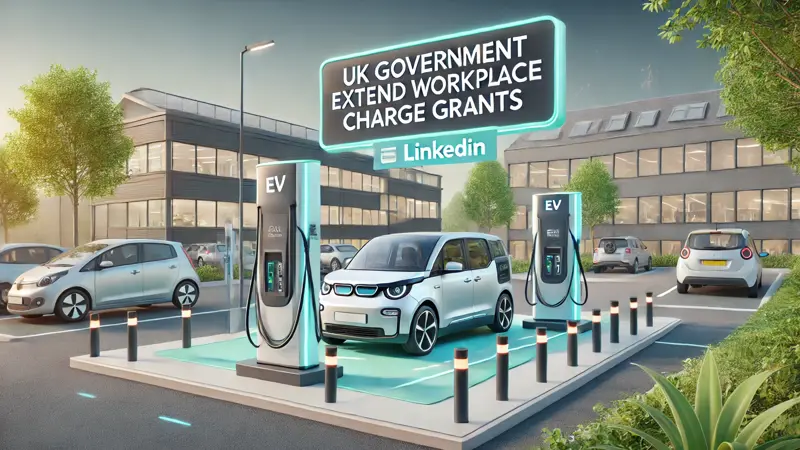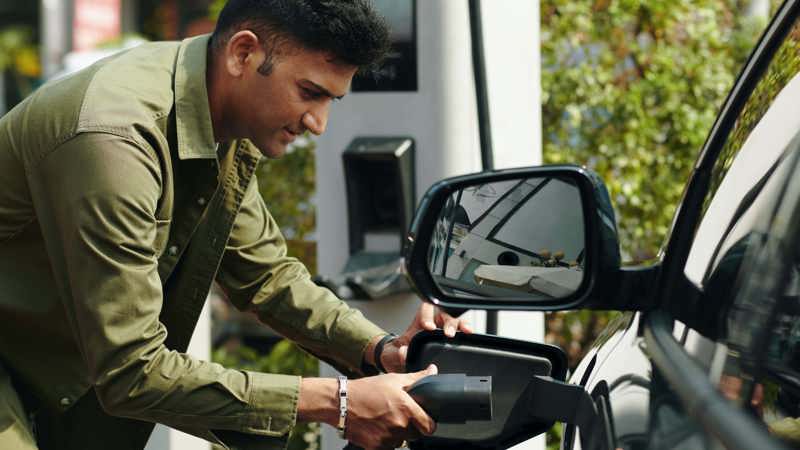
EV News Round-Up: BEV Quotas for Fleets, and First Flying Electric Car Approved in US
BEV Quotas for Fleet managers introduced, as effects of ICE sales mandate come into play
Fleet managers are required to order a certain quota of electric vehicles when making large fleet purchases, in an attempt to help manufacturers meet Government mandated sales targets.
Duncan Webb, fleet director at the AA, recounted his experience with the quotas during a webinar hosted by Fleet News:
According to Webb: “if you do want to buy a significant number of units as a fleet, then you have to buy a certain component volume of the relevant product.”
Head of fleet at the National Grid Lorna McAteer echoed this, stating that some manufacturers were insisting she could only buy ICE vans if 10% of the order was fully electric.
Industry representatives present at the Fleet News webinar confirmed that BEV quotas on bulk orders were being put into place.
sales mandates introduced by the Government at the beginning of 2024, stipulate that automakers must have at least 22% of their new car sales come from BEVs to avoid huge financial penalties.
The targets are set to increase each year incrementally, reaching a plateau at 80% from 2030 onwards before a move to entirely electric new car sales by 2035.
The effects of the mandates aren’t just being felt in the fleet sector, however.
With the possibility of falling short of the target becoming a reality for some, manufacturers like Peugeot have spoken out against the mandates. CEO Linda Jackson stated during a recent conference run by the FT: “We will not pay (EV quota) penalties, from both an ethical and business point of view.”
Ford has also reportedly threatened to restrict sales of its diesel and petrol vehicles to boost its percentage of electric sales in the UK for the year.
Despite this, other manufacturers look set to meet the quota, with Volvo in particular announcing a 50% sales share for BEV vehicles throughout April.
These varied reactions echo what many experts cited may be the case following the initial announcement of the sales mandate plans back in September 2023; that the mandates would “frustrate many while offering relief to others” (Gerry Keaney, BVRLA chief executive), depending on how far along each manufacturer is in its transition to electric vehicle sales and production.
It remains to be seen whether more action will be taken in order to help manufacturers reach these quotas.
The UK second-hand BEV market has grown by over 70%
Despite worries over new sales mandates, the market for second-hand EV sales reported huge growth of over 70% compared to the previous quarter.
According to the SMMT, Q1 figures accounted for over 41,000 second-hand EV sales, with market share rising to a record 2.1% of all vehicle sales. This figure eclipses the overall growth of just 6.5% in the used car market, showing a huge spike in demand for pre-loved plug-in vehicles.
With a strong second-hand market being deemed by many as a prerequisite for mass electric vehicle adoption, these figures demonstrate the clear value and demand for electric vehicles, especially in the more affordable price brackets.
With an increasing number of manufacturers from Dacia to Tesla announcing the rollout and development game-changing low-cost EVs to help fill this market void, these sales are only likely to become more equitable over time.
Fear lack of electric car chargers could deter tourism
Elsewhere last week, a representative from Norfolk County Council cited a lack of electric car chargers as a possible concern for the area’s tourism industry.
According to the Government, chargers in the region have already increased 63% since April 2023, but Liberal Democrat council member Rob Colwell believes this still may not be enough.
Mr Colwell said: "I think there is concern for business confidence... we are a really big tourism area and it's a huge part of our economy.
"It does worry me that potentially people could be put off visiting Norfolk if they can't change their electric vehicles.
"So I think a super rapid roll out is needed."
According to recent surveys, as little as 5% of EV drivers have cited that a lack of availability of EV chargers would not be factored into their decision-making process when choosing holiday destinations.
With the Summer months approaching and staycations reportedly on the rise, it may be time for those with the facilities to do so to install the chargers necessary to accommodate potential customers.
First flying electric car?
Finally, for this week’s news round-up, we come to some lighter news as the first fully electric flying car was announced early last week - at an eye-watering cost, too!
Manufacturers ‘Alef’ has received the green light from the FAA (Federal Aviation Administration) to produce the Alef Model A in the US, and are looking to begin production by 2025 with a provisional price tag of around $300,000.
The vehicle is expected to have a ground range of around 220 miles, and an in-air range of 110 miles on full battery.
We’re certainly not opposed to firing up the boosters and soaring over traffic, but maybe we’ll stay away at that price range. Even with its traffic-beating potential.
That’s all for our round-up of the last week in EV. Make sure to check our socials for our industry round-up series on each week, as well as the other fun and informative content we’ll be posting to our pages.


